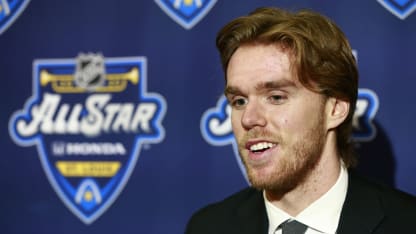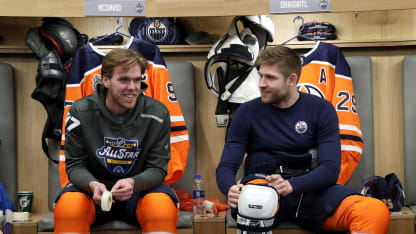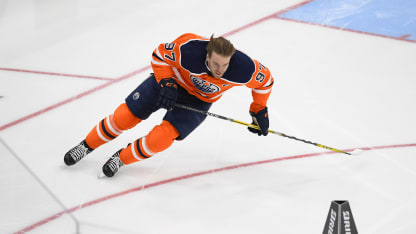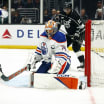ST. LOUIS, MO - There were times when Connor McDavid might've thought the 2019-20 season, and his career, was in jeopardy.
But the path to recovery taken by the Oilers captain to lead the NHL in scoring and captain the Pacific Division just 293 days later at the 2020 NHL All-Star Game in St. Louis has been nothing short of sensational.
What else could you expect from the NHL sensation?
After sustaining a tear to his PCL back on April 6 in the final game of the season against the Calgary Flames, surgery was presented as the first potential road to recovery. But with it being a relatively unpredicable procedure and the recovery period potentially stretching the entire season, it led McDavid to gather multiple opinions and go with the rehabilitation route.
The full journey of his recovery is chronicled in 'Connor McDavid: Whatever It Takes', a Sportsnet documentary that made its debut Friday night following the All-Star Skills Competition.
ALL-STAR: McDavid embraced rehab process to return rejuvenated
"It was an every-day thing right from when you wake up to when you go to sleep, and that's what had to happen," the Oilers captain said

© Jeff Vinnick/Getty Images

© Dave Sandford/Getty Images

© Brian Babineau/Getty Images


















